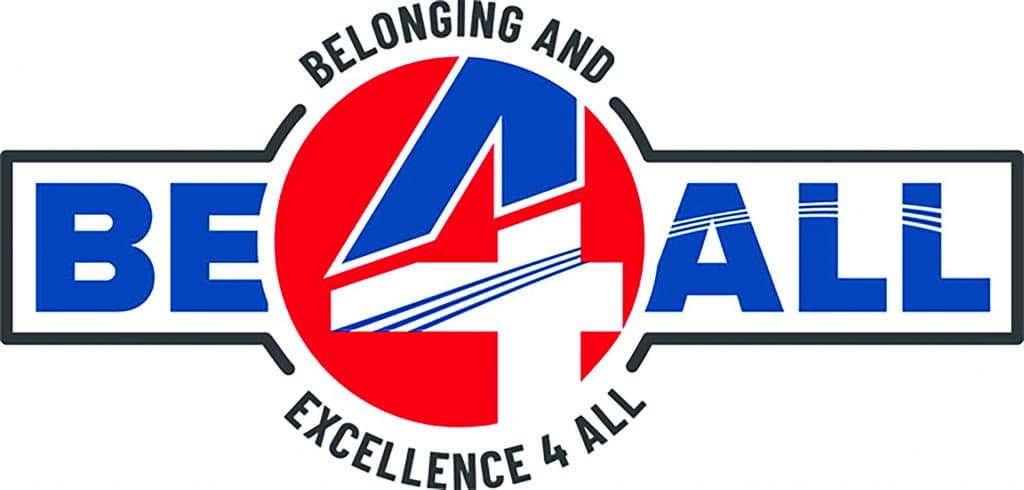
BE4ALL is a bold, multi-year effort to transform the sheet metal industry by ensuring our work environments are welcoming to all workers and that we achieve the highest standards of performance and excellence.
To make this vision a reality, BE4ALL has adopted several strategies. In the last issue of the Members’ Journal, we introduced the strategy of micro-affirmations. In this issue, we want to share the seven components of a courageous conversation.
A courageous conversation is an exchange between two people. Usually, the conversation is initiated in one of two situations: a) When we feel that we’ve been wronged by another person; and/or b) When we’ve done or said something (real or perceived) to wrong another person. The seven “A’s” are appropriate for disagreements or tensions around ideas, opinions, beliefs and personalities. They’re not necessarily appropriate in situations involving physical altercations, harassment or discrimination. In these situations, please consult your union representative.
Ultimately, courageous conversations are a tool for resolving interpersonal conflict and/or disagreements in the workplace. But, beyond this, they support us in being better human beings to one another. The following seven components can be practiced in sequence, or you can pick and choose which ones are more appropriate to your situation. They are:
1. ANCHOR
Initiating a courageous conversation is hard. This is especially the case if you feel the other person is wrong OR that you will lose something (i.e., the other person will see you as “weak” or “giving in”). Therefore, it’s important to prepare yourself — mentally and emotionally — before the conversation so that you have energy to draw on for what can be a long and uncomfortable process. Preparation may include listening to music, going for a walk/run, etc.
2. APPRECIATE
Share with the other person at least one thing you genuinely appreciate about them. It can be something they’ve said or done, or it can be some special quality, talent or gift they have.
3. ACKNOWLEDGE
Share with the person ways that you may have contributed to the problem or tension. If this isn’t relevant to your situation, you can skip this step.
4. ACKNOWLEDGE
Share with the person ways something they may have said or done impacted you. Share the feeling of the experience, NOT your evaluation of the experience or the person.
5. ASK
Whether you were the person wronged or you wronged someone else, ASK the other person a few probing questions as a way of approaching them from a place of understanding and curiosity.
6. AFFIRM
After the person shares, paraphrase or summarize what they shared by stating:
“What I think I hear you saying is …”
Affirming DOES NOT mean you agree with the person, it just means you are listening with the intent to understand.
7. AGREE
Both people agree on a new way to move forward (i.e., “let’s agree that, in the future, we’re going to ___________.”) OR ask the person for their ideas and support on how to move the relationship forward.
For more information on the seven A’s or if you have questions, please contact Dushaw Hockett at Dushaw.spaces@gmail.com or 202-360-7787.
Related News
- Sheet metal, transportation members discuss union pride for BE4ALL challenge
- Special Focus: SMART launches childcare benefit
- United across our two nations
- What we pay for
- Advancing safety and strengthening unity
- Taking the initiative across Canada
- REEF Act passed in win for rail workers
- SMART members fight for a just future at Martin Luther King Conference
- Ontario organizers hold training to grow our union
- Solidarity forever: Members help members after California fires




